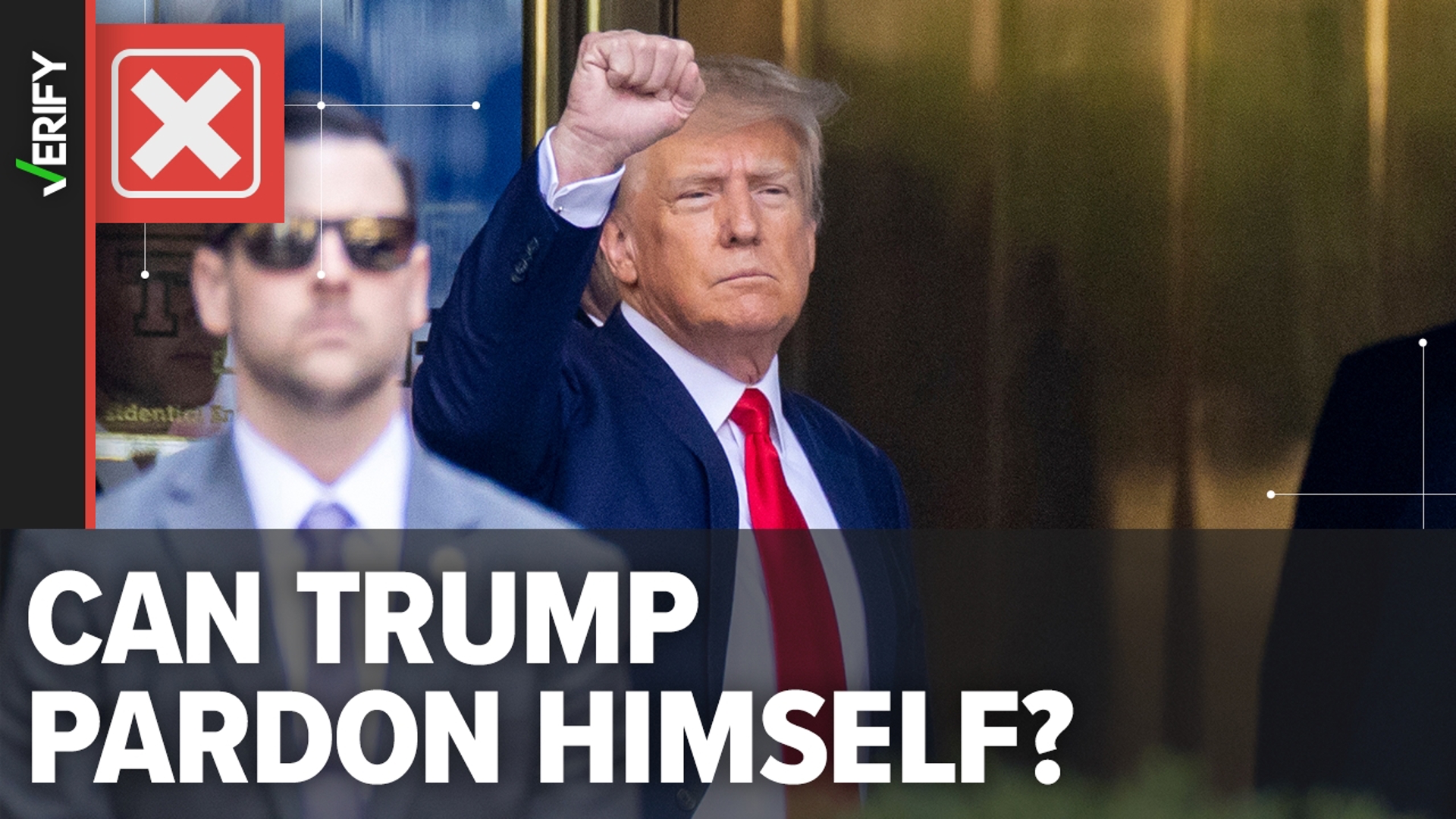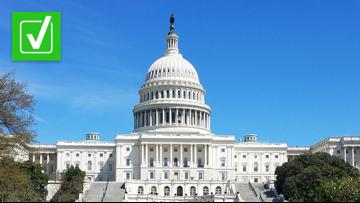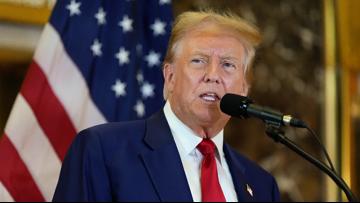UPDATE (11/6/24): This story has been updated to reflect Donald Trump's victory in the 2024 election and impending inauguration as president.
UPDATE (5/30/24): Donald Trump was found guilty on all 34 counts of falsifying business records. This story has been updated to reflect his conviction.
For the first time ever, the president-elect of the United States is a convicted felon.
Donald Trump was found guilty in May on 34 felony counts of falsifying business records, in a scheme to cover up hush money payments to porn star Stormy Daniels.
The New York judge, Juan Merchan, delayed sentencing several times. It’s currently scheduled for November 26th.
Trump will once again be sworn in as president on Jan. 20, 2025. The conviction does not prevent him from serving as president again, even if he is sentenced to prison.
Several VERIFY viewers asked us whether Trump could simply pardon himself once he takes office.
THE QUESTION
Can Trump pardon himself in the New York case once he becomes president?
THE SOURCES
The People of the State of New York v. Donald J. Trump indictment
Supreme Court of the United States, Ex parte Garland
THE ANSWER
No, Donald Trump cannot pardon himself of any of the state charges brought in New York. The Constitution only permits presidential pardons for federal crimes.
WHAT WE FOUND
The United States Constitution establishes the power of the president to issue pardons and commutations, which can, to varying degrees, reduce or wipe out the punishments of certain crimes.
Article II, Section 2 reads “The President… shall have Power to grant Reprieves and Pardons for Offences against the United States, except in Cases of Impeachment.”
The Supreme Court has ruled the president can pardon someone at any time after a crime has been committed, “either before legal proceedings are taken or during their pendency, or after conviction and judgment.”
There are only two firmly established limits to how the president can use the pardon.
First, as stated above, it does not apply in “cases of impeachment” – meaning the president could not un-impeach someone, including themselves.
Second, the pardon only extends to “offenses against the United States” – meaning federal crimes. State crimes are considered offenses against that state. Each state has its own process for administering pardons, usually involving the governor and/or some sort of board.
Trump’s conviction was for state crimes, in a case brought on behalf of the People of the State of New York. Trump violated New York Penal Law § 175.10, falsifying business records in the first degree, 34 times. State law describes this as a class E felony, which is higher than a misdemeanor but lower than all other felony classes in the state. Each count carries a maximum prison term of four years, but convicts with no prior felony record can receive much lighter sentences, such as probation or a fine.
The prosecution is being overseen by Manhattan District Attorney Alvin Bragg. The district attorney is responsible for prosecuting state crimes in Manhattan; federal crimes in that area are prosecuted by the Office of the U.S. Attorney for the Southern District of New York, which is an arm of the U.S. Department of Justice.
There is extensive debate about whether the president could pardon themselves for federal crimes; however, we can VERIFY the president cannot pardon themselves for state crimes.












